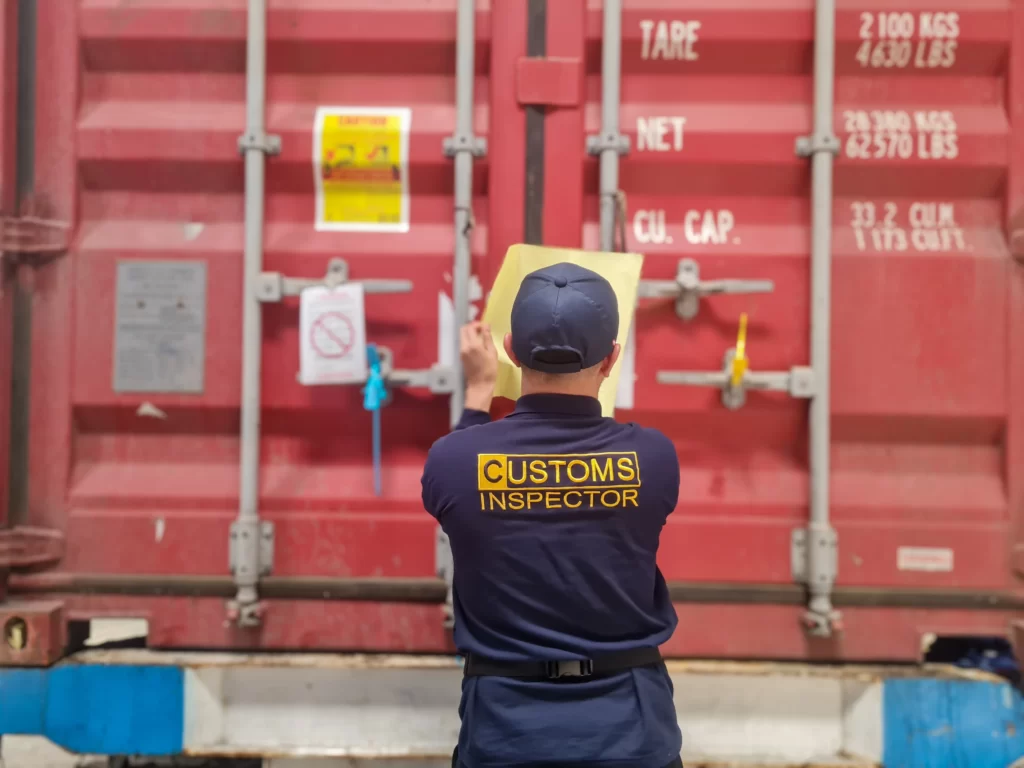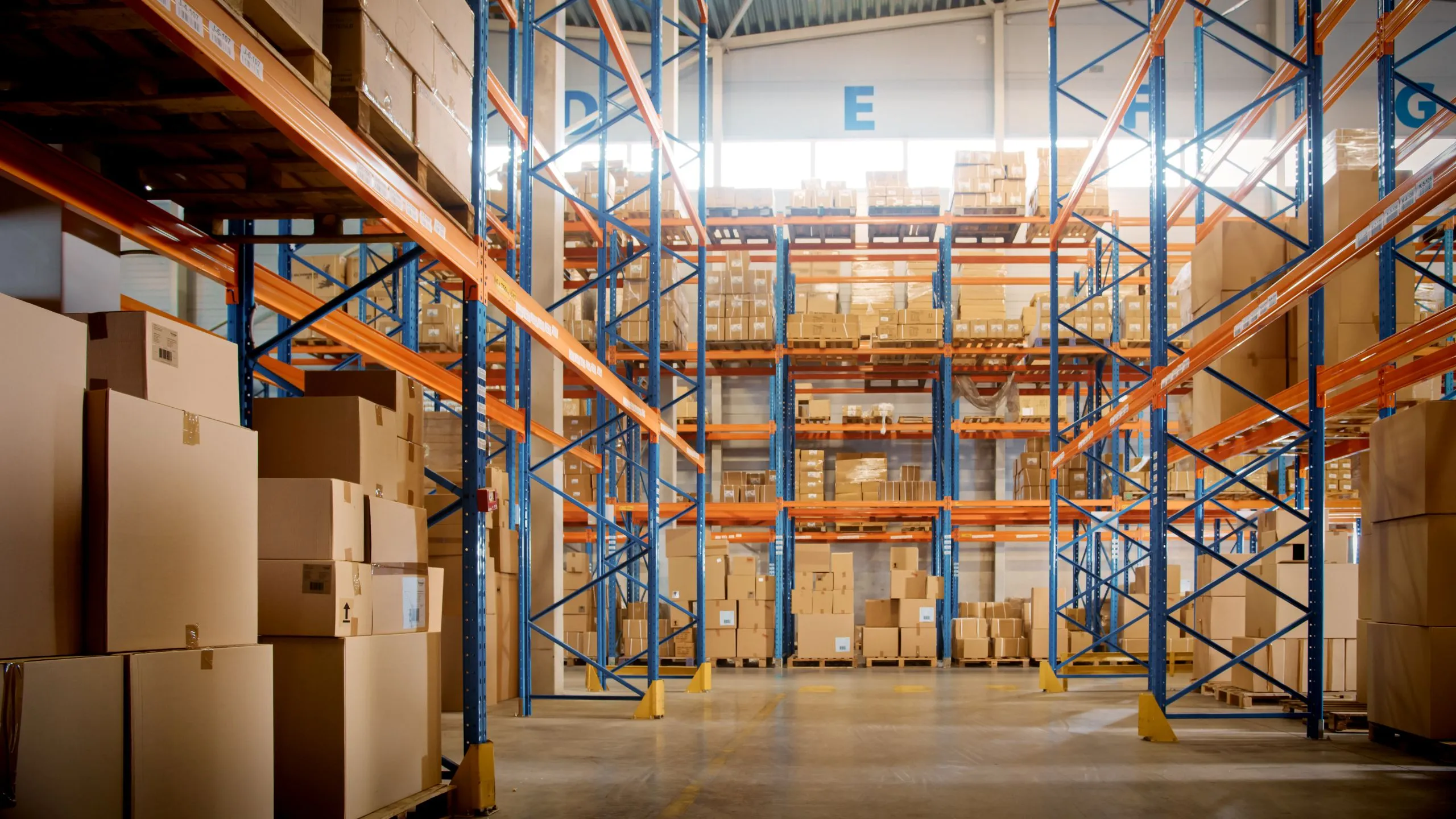Customs duty is a type of tax paid for your products to pass through customs smoothly when importing or exporting. The payment amount varies according to the countries’ duty rates and the product’s value.
In this article, you can find what you need to know about the customs duty calculated in international trade transactions. What is customs duty? How is customs duty calculated? What is the customs duty exemption? All your questions like these will be answered in our article.

What is Customs Duty?
Customs duty is a tax imposed by a country on products crossing its borders or imported. This tax is usually paid by the importer or exporter. Customs duty is used for purposes such as protecting local production, regulating trade balance, generating tax revenue and enforcing regulations on consumer health or safety.
Customs duty is usually determined according to the value, quantity or weight of imported products. Duty rates may vary depending on the type of product, country of origin and other factors. By increasing the cost of importing the product, customs duties can encourage local production. Customs duties are therefore considered an important component of a country’s trade policy.
Customs duties are also related to regulations in international trade and free trade agreements. If there are free trade agreements or customs union agreements between countries, customs duties may be low or zero under these agreements. This aims to promote trade liberalisation and a freer flow of goods and services.
Each country has its own customs duty policies and rates, so it is important to pay attention to these duties and account for them appropriately when trading internationally.
The duty application applied at the customs border in Turkey’s import and export transactions, the duty rates to be applied according to product groups are determined by Customs Law No. 4458.
You can follow the current customs rules on the Customs Guide page prepared by the Ministry of Trade.
How to calculate customs duty?
When calculating customs duty, the value of the goods declared in the commercial invoice is calculated by taking all insurance costs and a percentage of the transport cost. This value is then multiplied by the customs duty percentage of the customs tariff code (GTIP). Customs Tariff Statistics Position Number (GTIP) is a 12-digit code that determines the location of a product in the Turkish Customs Tariff Schedule. According to the customs tariff, CIF Value (Goods Price + Freight (International transport cost) + Insurance) can be formulated.
In the calculation of customs duty, 3 basic factors are taken into account:
- Tariff classification of the goods: Tariff classification is the systematic classification of exported goods in the same way in order to ensure that all institutions involved in international trade can speak a common language. For more detailed information on the tariff classification of goods, you can visit the tariff classification page prepared by the Ministry of Trade.
- Origin of the goods: The concept of origin is used to express the country to which the economic value of a good placed on the market belongs. For more detailed information on the origin of goods, you can visit the “What is the origin of goods?” page by the Ministry of Trade.
- Customs value of the goods: In customs duties levied on the financial value of the goods to be shipped internationally, the tax base is the customs value of the goods. For more detailed information on the customs value of goods, you can visit the customs value of goods page prepared by the Ministry of Trade.
How to make a customs duty enquiry?
Customs duty inquiries can be made through the “Customs Duty and Penalty Debt Inquiry System”. You can find out your customs duty debt by clicking on the link of the Ministry of Trade’s Customs Duty and Penalty Debt Inquiry System.
How to pay customs duty?
After the customs duty of your shipment is determined, you will be notified via SMS. After receiving the notification, you can pay through public banks or cashiers at the customs counters. In addition, some of the cargo companies have the opportunity to pay customs duty through the operator. You can pay your tax through your operator via the information and payment link in the text message sent to your phone from the cargo company. This tax you pay is reflected on your phone bill by your operator.
You can make your Customs Duty payments to certain authorised banks. Public banks where customs duty is paid are as follows:
● T.C. Ziraat Bankası A.Ş.
● Türkiye Halk Bankası A.Ş.
● Türkiye Vakıflar Bankası T.A.O.
● Ziraat Katılım Bankası A.Ş.
● Vakıf Katılım Bankası A.Ş.
● Türkiye Emlak Katılım Bankası A.Ş

What is Customs Duty Exemption?
Customs Tax Exemption is the exemption from customs duty for some products imported from abroad or exported abroad.
According to Article 4458 of the Customs Law No. 167 Exemption and Exception from Customs Duties, the products exempt from customs duty are as follows.
- Goods coming for the President in person and for his residence,
- Diplomatic goods imported on the basis of reciprocity,
- All kinds of vehicles to be imported by the General Staff, the Ministry of National Defence, the Force Commands, the Undersecretariat of the National Intelligence Organisation, the Presidency of Defence Industries, the General Command of Gendarmerie, the Coast Guard Command and the General Directorate of Security exclusively about their primary duties and the field of activity of the Machinery and Chemical Industry Corporation and the Undersecretariat’s anti-smuggling duty, equipment, tools, weapons, equipment, machinery, devices and systems and spare parts, fuel and lubricants, raw materials, materials to be used in their research, development, training, production, modernisation and software, as well as in their construction, maintenance and repair, and aid material received from external sources free of charge
- From personal goods to be put into free circulation by real persons;
- Used motorised or non-motorised private transport vehicles belonging to real persons who transfer their settlements to the Turkish customs territory, which are not older than three years at the time of receipt,
- All kinds of used household goods belonging to real persons who transfer their settlements to the customs territory of Turkey,
- Dowry belonging to persons who come to Turkey to marry or married with a Turkish person whose place of residence is in Turkey,
- Personal property inherited by way of legacy,
- Education-related materials and other household goods related to education for students coming to Turkey to study,
- Used household goods brought back by real persons temporarily leaving the customs territory of Turkey,
- Household goods brought temporarily or permanently by real persons whose place of residence is outside Turkey to be used in their residences purchased or rented in Turkey,
- Non-commercial personal belongings for passengers’ own use,
- From other goods to be brought into free circulation by real persons;
- Souvenirs accompanying the passengers with a value not exceeding 430 EURO,
- Badges of honor or awards,
- Gifts received within the framework of international relations,
- Of the goods imported by persons, institutions and organisations to be determined by the President of the Republic for non-commercial purposes and to be used for their intended purpose;
- Goods for educational, scientific and cultural purposes and scientific instruments and devices,
- Instruments and devices for medical diagnosis, treatment and research,
- Animals and biological or chemical substances for scientific research purposes,
- Human-derived therapeutic agents and blood grouping and tissue type differentiation markers,
- Substances intended for quality control of products with pharmaceutical properties,
- Goods imported for use in research and development activities carried out or supported by national research and development institutions,
- Imports in connection with the conduct of a commercial activity;
- Capital goods and other materials imported by transferring the workplace,
- Products obtained by farmers operating in the customs tTerritory of Turkey from their properties in the neighboring country,
- Seeds, fertilizers and other products for the cultivation of soil and crops brought by farmers in neighboring countries for use in their properties in the customs territory of Turkey,
- Non-commercial samples,
i – Samples and models of no significant value,
ii – Printed advertising documents and materials for advertising purposes,
iii – Products used or consumed at a trade fair or similar activity,
- Goods imported for inspection, analysis or testing purposes,
- Goods used in transport;
- Auxiliary materials for stacking and protection of goods during transport,
- Dry grass, feed foodstuffs and medicines used during the transport of live animals,
- Fuel and lubricants available in transport vehicles and special containers,
- Equipment and operating materials for sea and air transport vehicles,
- Aircraft, engines and their parts and components imported for use in these activities of airline companies engaged in passenger and freight transport activities,
- Import of information material;
- Goods sent to organisations protecting publication rights or industrial and commercial patent rights,
- Touristic advertising materials,
- Various documents and goods without commercial value,
- Import of funeral and funeral-related goods;
- Goods for the construction, maintenance and decoration of war victims memorials and cemeteries,
- Coffins, funeral urns and funeral urns with ornamental qualities,
- Other goods;
- Goods for the use of invalids and disabled people,
- Goods sent to the victims of crises such as natural disasters, dangerous and epidemic diseases, major fires, chemical and technological events of significant nature such as radiation and air pollution, and major population movements,
- Pharmaceutical products brought for use in international sports competitions organised in Turkey
What are the customs duty rates by country?
The customs duty rate applied to import or export transactions between EU member countries and Turkey is 18%. Import or export transactions between non-EU countries and Turkey have a tax rate of 20%.
What is Additional Customs Duty?
The tax levied in addition to the customs duty on some imported products is called additional customs duty. Additional customs duty aims to protect domestic producers and the domestic market.
Additional Customs Duty (ACD) is an additional customs tax imposed as part of a country’s foreign trade policies. Additional Customs Duty is usually levied as an additional tax or surcharge on certain imported products. Such duties may be used to protect local industries, increase foreign exchange reserves, or for other economic purposes.
Additional Customs Duty is paid by the importer and is levied in addition to the customs duty that the importer must pay during the import process. Such duties may increase the importer’s costs and may be used to restrict imports or to encourage importers to favour local products.
Each country has its own customs policies and Additional Customs Duty rates. Additional Customs Duty rates may vary by product type, country and period. The customs authority or ministry of commerce of the relevant country determines the additional customs duty rates and application rules. Businesses or individuals planning to import should research and consider additional customs duty rates and requirements in advance.
How are customs procedures carried out in exports?
The first step of customs procedures is to make a customs declaration. You will need a customs declaration when notifying the customs office that you will export from Turkey to abroad. The customs declaration form includes information such as sender-recipient company information, value, tariff, origin, transport information, and taxes. You must submit the customs declaration electronically using the BILGE system (Computerised Customs Activities). It is enough to apply to any customs directorate to get a username and password.
During the approval process, the Customs Directorate may want to examine your product, this is called “physical examination of the goods”. When the customs directorate checks and approves your customs declaration for the products you want to export, you are ready to export.
With fiCommerce, your end-to-end e-commerce solution partner, you can effortlessly start selling in Europe’s leading marketplaces.
By communicating with fiCommerce’s expert team in your language, you can develop your e-commerce website, get customer service support in different languages and manage your marketplace stores in different countries. Fill out the contact form to get detailed information.
2023 Young Entrepreneur Support Guide, we recommend you to take a look at our article.





